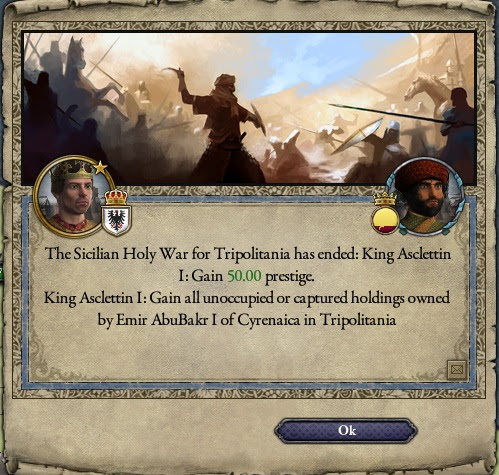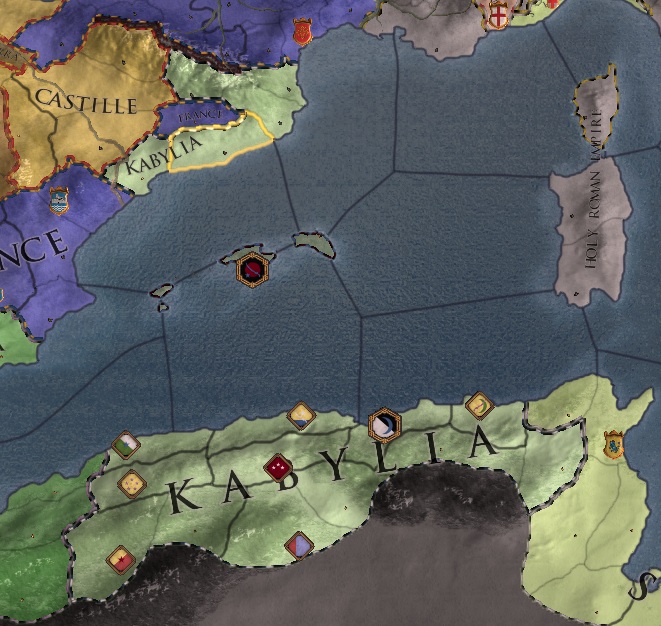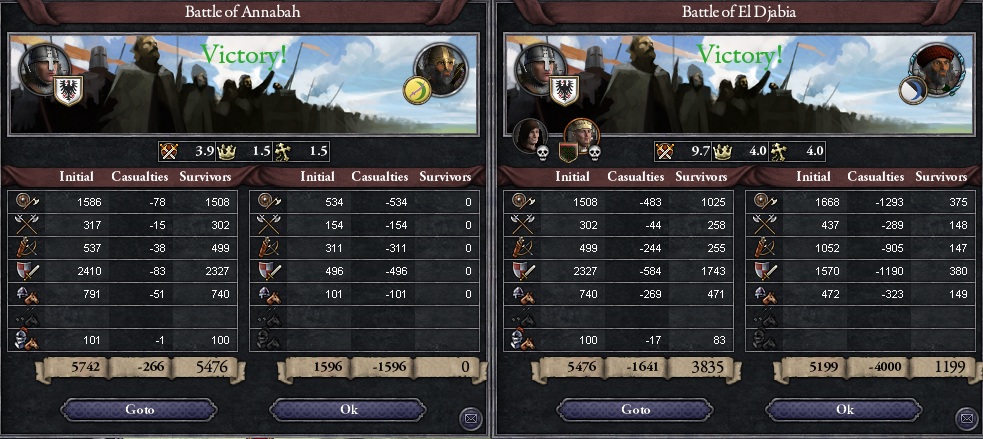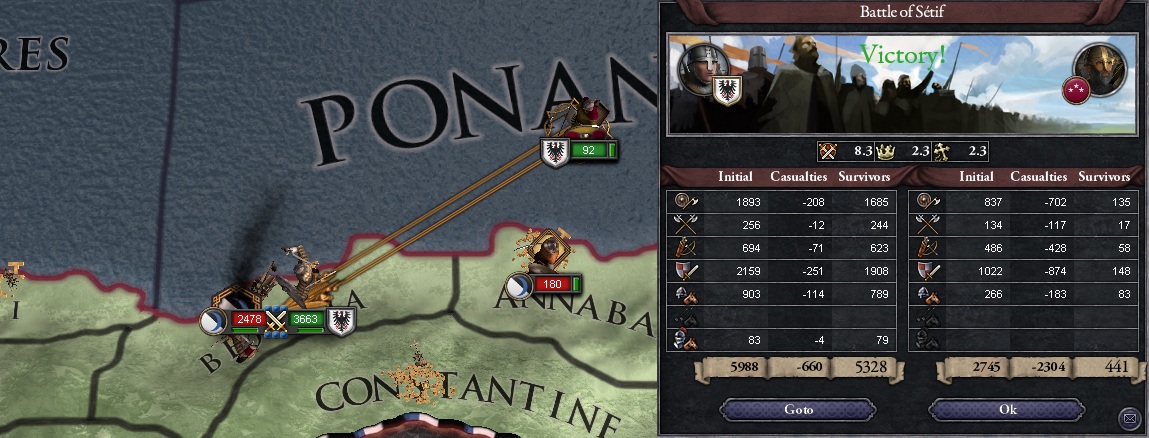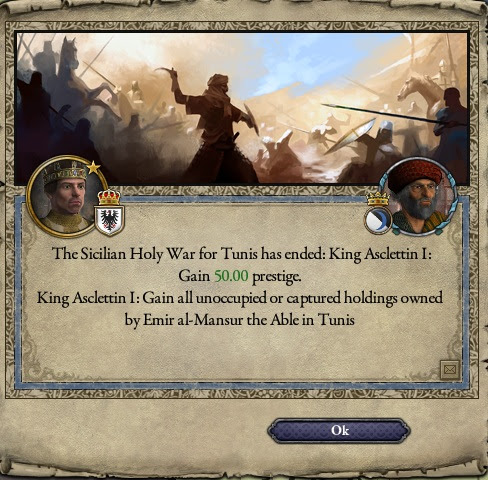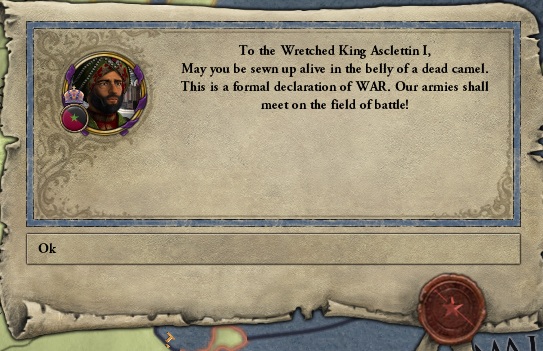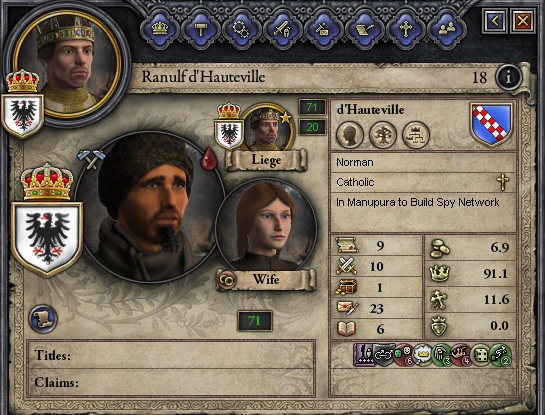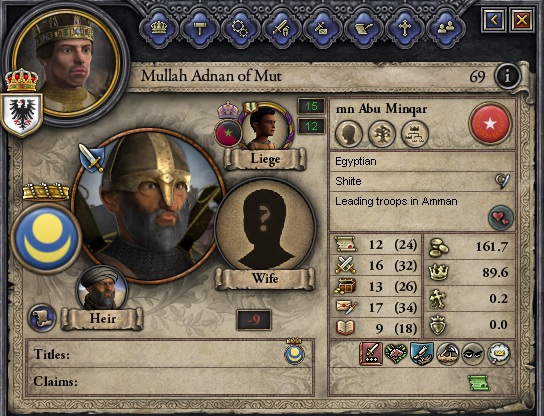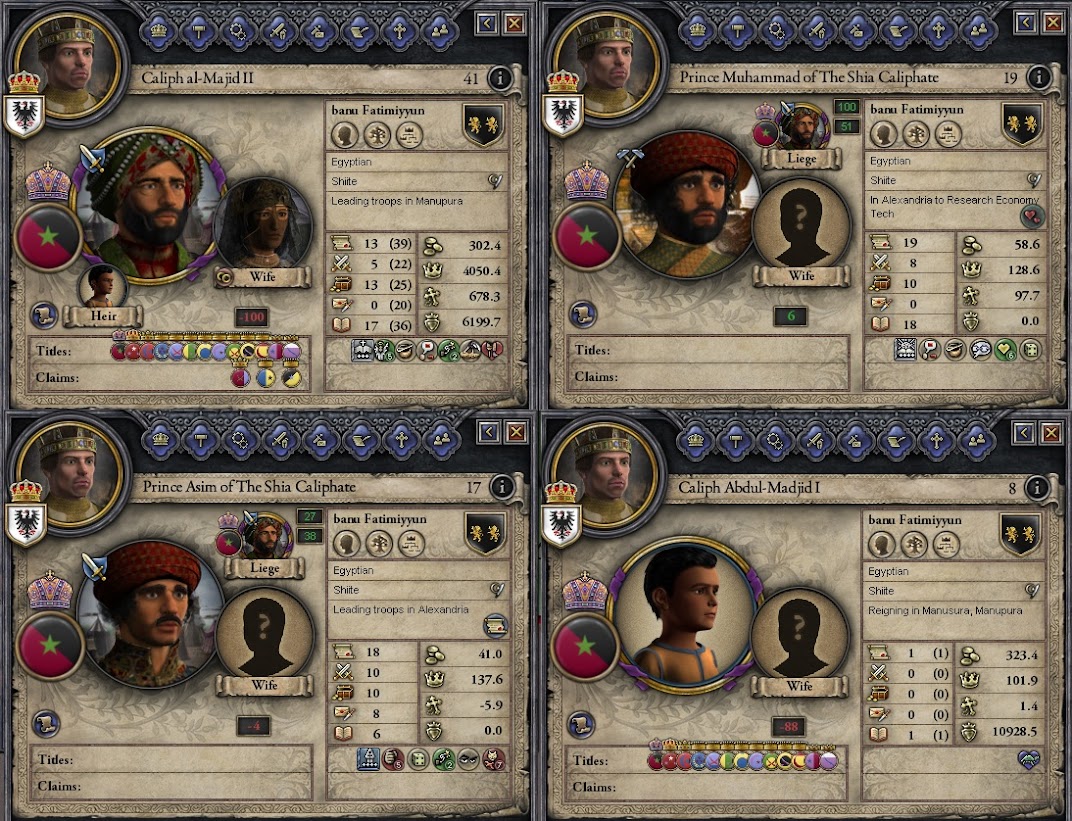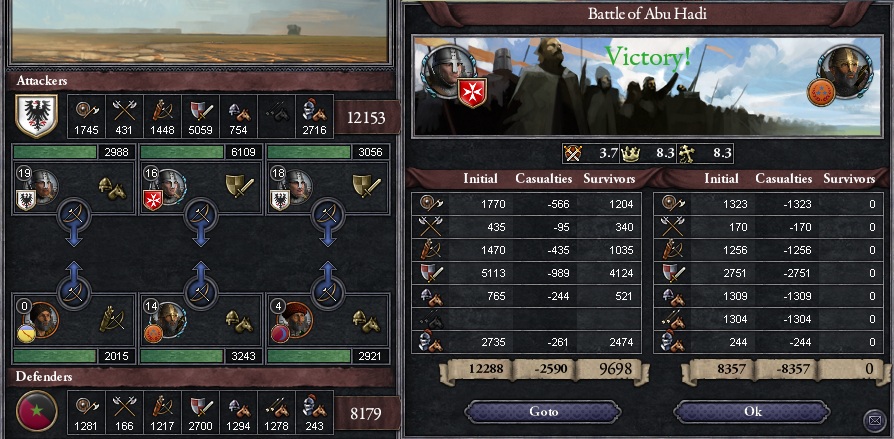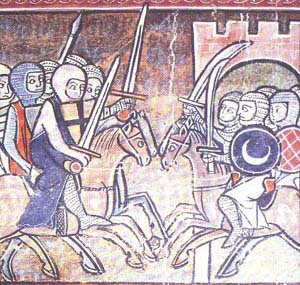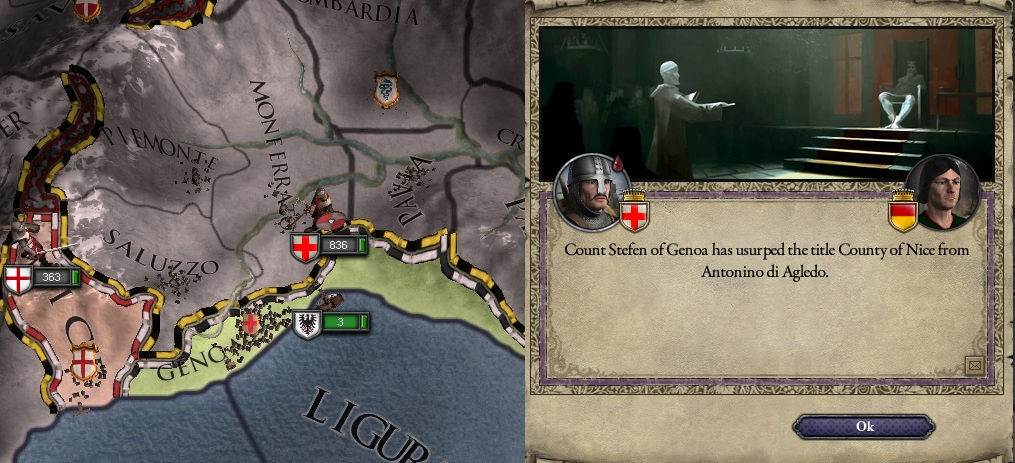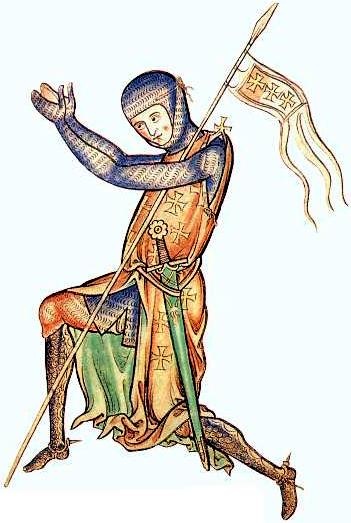The War with Caliphate, 1132-1138
The Folly of the New Caliph
In November 1132, 15 000 Arab soldiers started their march from Cairo. It was a marvellous army, with knights, horse archers, plenty of light cavalry and huge amounts of infantry. Bigger and better-equipped then anything Sicily had faced before.
Ranulf, still in Cairo, kept track of their movement and promptly informed the King. In preparation, Asclettin entered the negotiations with Knights Hospitaller, resulting 7000-strong army in Palermo, costing him nothing (and almost depleting his piety). Plus, all the levies from his personal demesne were recruited, making it an army of 12 000 man. Ample number of ships were sent to the Palermo as well to transport them all.
Caliph chose a land march instead. Through the desert areas of Caliphate, through the not so friendly Emirate of Cyrenaica. It was the Mullah Adnan’s idea- he thought ships would be too expensive and land march would cost him less. It is one of the tough choices you have to make when you also try to embezzle Caliph’s money to your pocket like a good regent should.
Finally, in February, Caliph’s army had reached Syrte, the easternmost of the Sicily’s African holdings. The tough conditions in the desert- the sun, the lack of water, the difficulties in obtaining enough food for a whole 15 000 man and all the other factors meant that only 10 000 had survived the journey. Even worse, these 10 000 were not in their best condition- exhausted, starved, diseased. By next month, another 2000 were dead, leaving Caliph’s army down to 8000 soldiers.
Now, it was time for Norman army to move. Total 12 000 boarded ships in Palermo and landed in the neighbouring province. Well-supplied, happy, full of vigour and 7000 Hospitaller knights with them- was there ever a question about the outcome?
The centre of Sicilian flank consisted only of Hospitaller knights, heavy infantry and archers, both flanks were Norman.
The battle begun in May. It started with Hospitallers cavalry charging dead-on into Muslim front lines, breaking them apart, then turning into sides and attacking both flanks while infantry and archers dealt with the survivors. Tired, diseased and still badly supplied Muslims couldn’t put up a proper resistance and the army of the Caliph was killed to a last man.
The army that was supposed to bring Christians to their knees and kick them out of Africa destroyed by the same Christians hampered Caliph’s war efforts, but the caliphate was anything but destroyed. New armies were recruited, the battles will continue. But the backbone of Caliphate was broken that day.
The main battle of the war
Crusades
Pope had declared Tyrus a target for a Crusade nearly 50 years or so ago. The Christendom took the announcement with mix of silence, disbelief and total refusal to take up arms against the Caliph of half of Muslims. No-one was feeling suicidal. Even the most foolhardy thought twice and stayed home, for the power of Caliph was legendary.
After the battle of Abu Hadi, some Christian rulers thought it that it showed something important- Christian ruler beating the great Caliphate is possible. But they failed to understand one important detail- it was just one battle. Of many to follow.
Two Dukes, of Verona and Holland, decided to try their luck. They even managed to get their troops as far as the Holy Land, but they were decimated by Muslims. Others did not dare to try. But to Sicily, their intervention was uncalled for. Instead of some Emirs thinking Caliphate is weak and it is good time to become independent, the war with them two made Muslim community gather together and defend them against Christian onslaught.
In the end, both Crusades ended without any other result then bones of loyals subjects of the Dukes decorating Holy Land.
The Rest of the War
After the victory at Abu Hadi, Asclettin sent the levies home, leaving only Hospitallers to guard Africa. He knew though that the war is far from won, so the Sicilian levies were ready to be called on moment’s notice. In fact, during the time, most of Asclettin’s soldiers crossed the sea several times when another Muslim threat emerged. As soon as the Muslims landed somewhere, levies were called, gathered in Palermo and sailed over the sea to defeat the enemy. This way, Asclettin managed to save money to pay the troops and was still able to react quickly when there was need.
For Muslims kept on coming. They marched over Cyrenaica again, they used ships to cross the sea and land mostly on African soil. They also tried to invade Malta. But all the invasions were defeated.
It is pointless- and really- time consuming, to tell about the details of the war, because they are all following the same formula- Muslims try to siege a province, Christian army comes, beats them up, then after a while, it happens again. So, instead, let me give you a list of battles:
26. March 1134. Battle of Midoun in County of Derba- 12 279 Christians vs 8765 Muslims
Result: 2379 Christians, 7051 Muslims dead, Norman victory. Rest of the Muslims killed in follow-up battle.
18. February 1135. Battle of Tripoli in County of Tripolitania- 12 121 Christians vs 2745 Muslims.
Result: 252 Christians, all Muslims dead.
2. April 1135. Battle of Leptis Magna in same County- 12 057 Christians vs 1742 Muslims.
Result: 109 Christians, all Muslims dead.
8. May 1135. Battle of Mdina in Island of Malta- 11 948 Christians vs 10 124 Muslims. When the battle started, there was less, but Caliphate brought about 1500 soldiers on ships as reinforcements.
Result: 3826 Christians dead, the biggest loss in this war. 7093 Muslims dead, rest ran away and scattered on the Island. Muslim-hunting became a popular pastime for locals and the boars breathed from relief for a while.
Knights charging Muslims in Battle of Mdina
15. April 1137. Battle of Ajim in the County of Djerba. 13 419 Christians vs 7108 Muslims.
Result: 1924 Christians dead, 6389 Muslims. Rest of the Muslims killed in follow-up battle.
28. December 1137. Battle of Syrte in the same County. 13 356 Christians vs 4147 Muslims.
Result: 887 Christians dead, 3242 Muslims. Rest of the Muslims fled over Cyrenaica’s borders and Sicilians didn’t pursue them.
6. June 1138. Battle of Midoun in County of Djerba. 14 996 Christians vs 9616 Muslims.
Result: 2456 Christians dead, 8619 Muslims. Rest of the Muslims killed in follow-up battle.
26. October 1138. Battle of Ajim in the County of Djerba. 10 572 Christians vs 1961 Muslims.
Result: 198 Christians dead, all Muslims annihilated.
9. November 1138. Battle of Syrte in the same County. 10 317 Christians vs 3022 Muslims.
Result: 213 Christians dead, all Muslims annihilated.
In 22. November 1138, the new Caliph had had it. Finally, it was clear to the Caliphate that this is a war they cannot win and so, the peace was signed between Sicily and Caliphate, declaring Sicily total victor and Caliphate paying Asclettin nearly 1100 gold for all the damage caused.
All the battles during this war, placed nicely on the map.
Overall, 14 636 Sicilians died in the battlefield. Plus some man for desertion, starvation, diseases and the usual things that accompany war, but the numbers were not that great. Muslim losses were much higher. 55 685 man lost their lives in direct battle and different historians are still arguing about the indirect loss of troops, but the number is usually thought to be around 10 000 to 30 000 man. Overall, losing about 65 000- 95 000 soldiers. Plus, 1000 gold in indemnities emptied their coffers and left struggling for years to come.
Most of the money Asclettin got from went into building an university in Palermo. When this was complete, theologians, philosophers and scientist from all over Europe and Arab lands gathered there, making Palermo one of the cultural centres of Europe. It also shows that Asclettin knew something besides war- and his decision to fund the University was perhaps more important then anything else he did in his long rule.
 And to be honest, neither of them were considerable opposition.
And to be honest, neither of them were considerable opposition.


